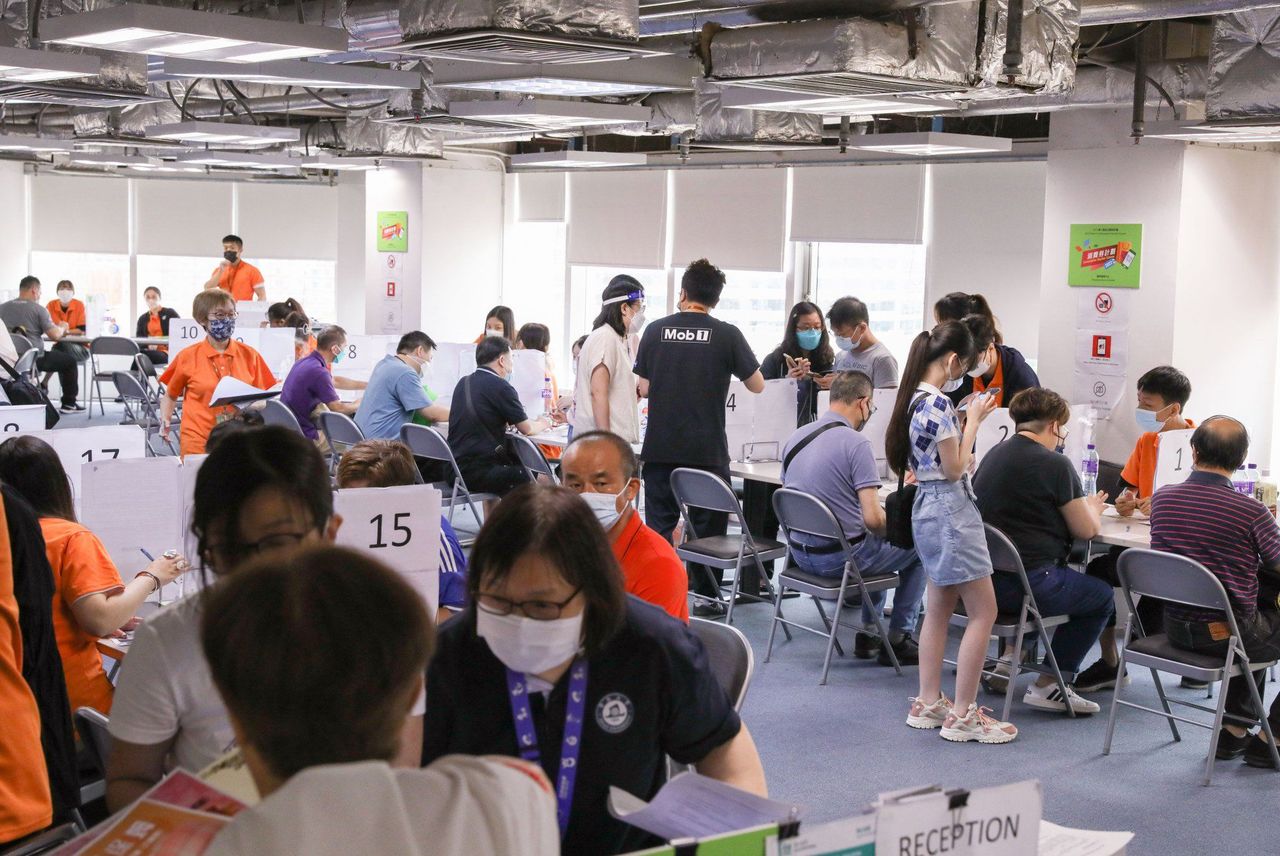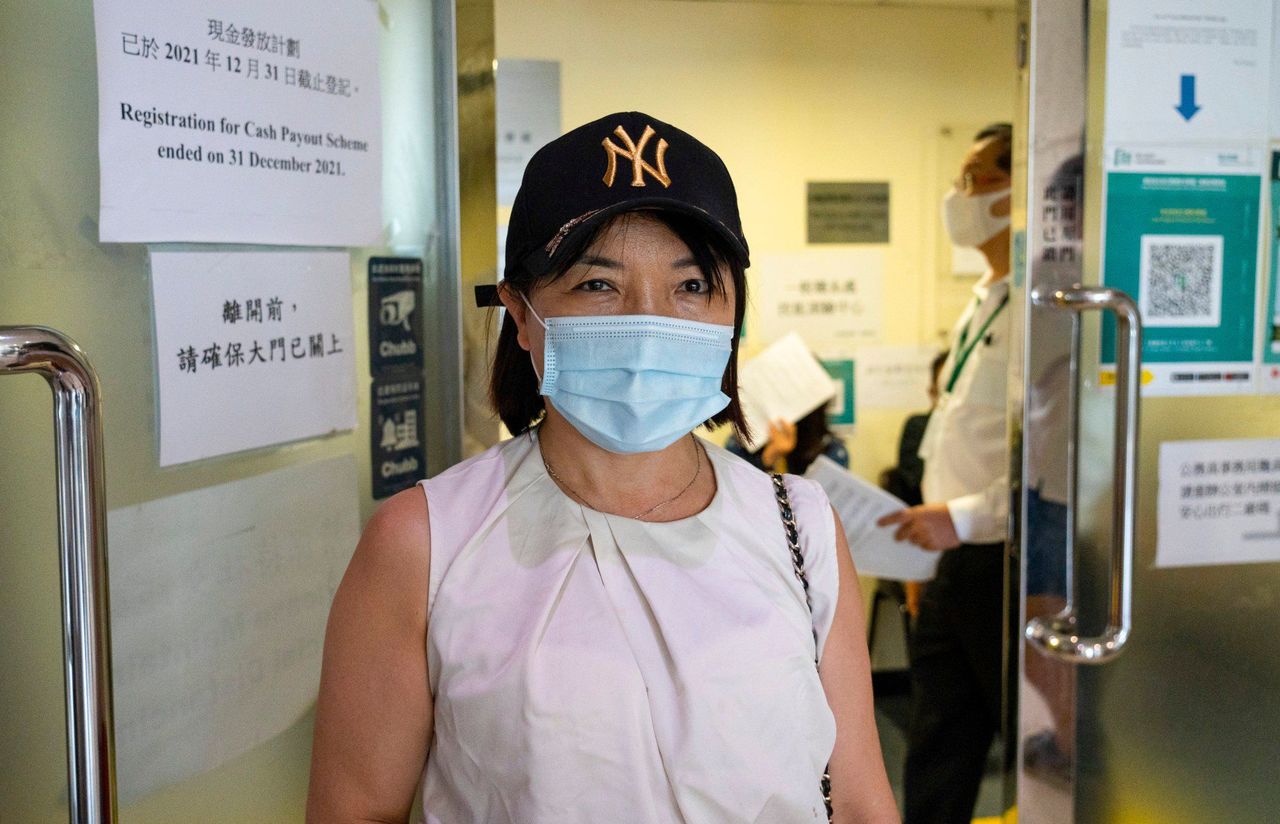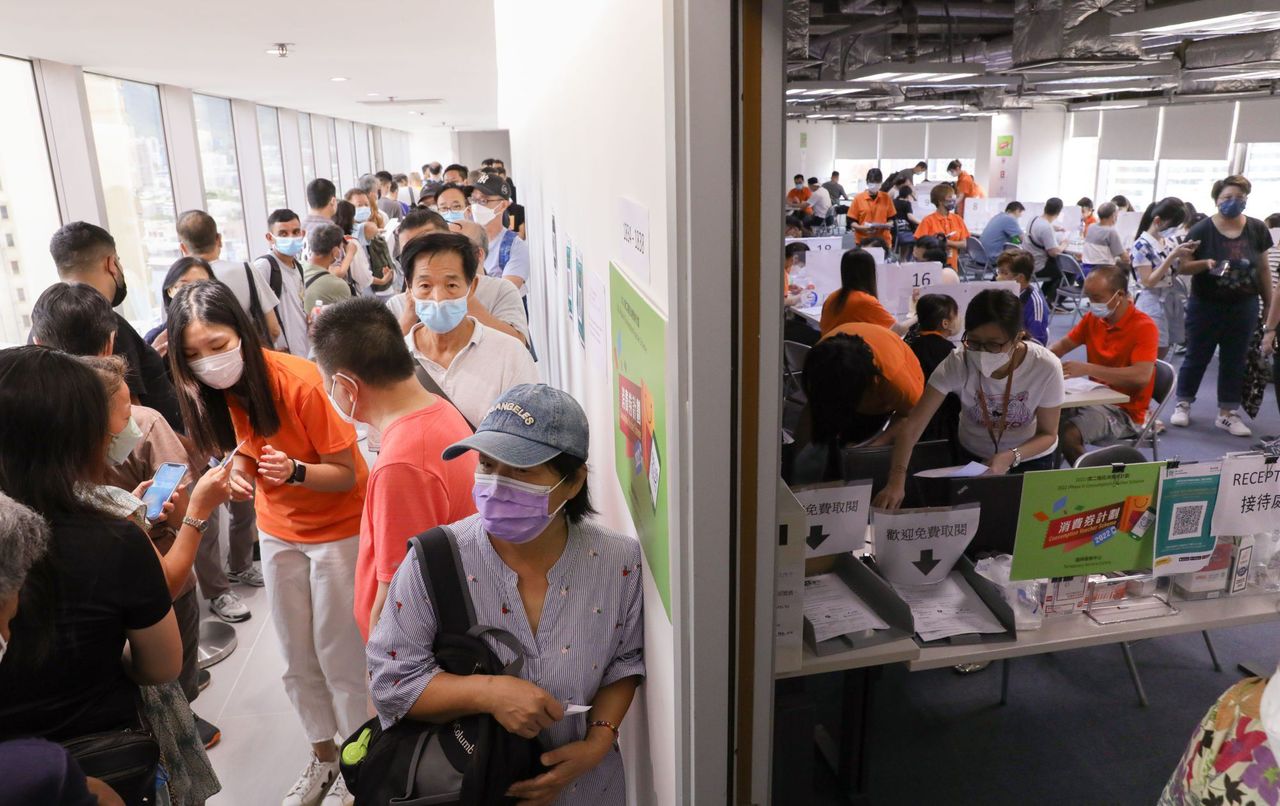Hong Kong News

Hong Kong utility bill may be enough to appeal rejection for HK$5,000 handout
People may only have to offer proof of names and addresses that can show their residence in Hong Kong as an option to qualify for the government’s latest pandemic handout of HK$5,000 (US$635) after officials promised to consider simplifying the verification process, the Post has learned.
The authorities acted after almost a quarter of a million applicants were initially rejected because they received evidence that they no longer lived in the city.
About 240,000 people were ruled ineligible for the latest round of consumption vouchers, aimed at boosting an economy hard-hit by the Covid-19 pandemic, and crowds flooded a government office on Friday to appeal against the ruling.
But a government source told the Post the administration was considering making the appeals process easier and requiring people only show proof of their names and addresses, such as utility bills, to claim the cash.
At the consumption voucher service centre in Mong Kok, with its three offices and about 40 counters handling inquiries from about 100 people at one stage, a Post reporter observed that most of the questions dealt with disqualification for the consumption vouchers.
 Residents at the consumption voucher service centre in Mong Kok on
Friday. About 240,000 people have been ruled ineligible for the latest
round of handouts.
Residents at the consumption voucher service centre in Mong Kok on
Friday. About 240,000 people have been ruled ineligible for the latest
round of handouts.
The government is expected to hand out the second tranche of e-vouchers on August 7 to about 6.3 million eligible residents, plus 300,000 people eligible for residency, such as people with specialist qualifications, entrepreneurs and students. But people with plans to migrate are disqualified.
Jessie Wong Hok-ling, head of the budget and tax policy unit in the financial secretary’s office, earlier revealed on a radio programme that officials had sent text messages to about 240,000 people to tell them they were not eligible for the second release of consumption vouchers.
Wong said officials made the rulings based on “prima facie information” that the people involved had “permanently left Hong Kong” after they had applied to withdraw their Mandatory Provident Fund (MPF) contributions, so were ineligible for the consumption vouchers.
She said officials had received 4,000 appeals by Tuesday, which would require people to submit evidence of re-established residence in the city, such as salary slips, over a 14-day period, which some residents said was hard to comply with.
All 10 people the Post interviewed said they received a text message that told them they could not get the vouchers as they earlier withdrew their MPF because they were “permanently leaving Hong Kong”.
Danny Ho, 54, said he took out the money from his MPF account a decade ago when he decided to quit his job after he developed psychiatric problems.
Ho explained he did not restart his pension contributions but had been working a part-time job and living in Hong Kong.
“I don’t think MPF is the critical issue, because everyone has their own reasons for getting the money back,” he said. “The thing is we still live here, otherwise you wouldn’t have seen so many people appealing today.”
Ho said he had failed to submit an appeal because he lacked proof of residence in Hong Kong. But he highlighted that he had been “conducting follow-up consultations in public hospitals since 2018“.
“It is ironic that I have to prove it when you can just easily search my name in the system,” he said, adding that the government had confused the public by “punishing the wrong group of people”.
 Apple Wong, a 51-year-old waitress, is among those who plan to lodge an
appeal against disqualification from the second round of HK$5,000
consumption vouchers
Apple Wong, a 51-year-old waitress, is among those who plan to lodge an
appeal against disqualification from the second round of HK$5,000
consumption vouchers
Apple Wong, a 51-year-old waitress who encountered problems after she started a business, said she had filed for bankruptcy and decided to withdraw her entire MPF of tens of thousands of dollars to help pay bills 10 years ago.
She said she had lived in Hong Kong since she moved to the city in 1991 from across the border.
“That was such a long time ago, and I never knew the move would become an obstacle to get the consumption vouchers,” she said. Wong resumed contributions to the fund as soon as she found a job the next year and has continued to make them.
Wong took a day off from work after she received the disqualification message and went to the centre in person on Friday.
“This is not just about the money, but a past that you don’t want others to know,” Wong told the Post. “Now my children all knew that I had taken money out from my MPF account and I had to explain the reasons.”
Steven Lai, a 45-year-old restaurant manager, also got a text message to tell him he had been disqualified.
He admitted he withdrew his MPF two years ago because he had planned to live with his wife in mainland China. He explained that he was on unpaid leave at the time and wanted to save on expenses.
But Lai changed his plans in late 2020 after the pandemic situation in Hong Kong improved and stayed on in the city.
“During the first phase of the consumption vouchers in April, the government did not do anything … it feels like the government is just moving the goalposts,” Lai said.
The government should have done more thorough checks before it disqualified people, Lai said, adding that officials could also look at people’s immigration records.
 Residents queuing at the Mong Kok consumption voucher service centre on Friday.
Residents queuing at the Mong Kok consumption voucher service centre on Friday.
But Jessie Wong defended the government’s position and said officials wanted to help as many people as possible.
“We want residents to understand that we won’t choose a difficult route over an easy one – if we have some information that makes us believe that those residents have not permanently left Hong Kong before, we will definitely take them,” she said.
But Wong said that, for example, officials were prevented by legislation from looking at the latest tax returns of disqualified people to double-check their eligibility.
She explained that the eligibility requirement was introduced only after concerns were raised that money had been given to people who had left Hong Kong in the first stage of the voucher scheme.
More than 6.3 million people were given the $5,000 digital vouchers in April, through service providers Alipay HK, Octopus, Tap & Go and WeChat Pay HK.
BoC Pay and HSBC’s PayMe have joined the earlier providers for the second round of the scheme, which was announced in March.
AlipayHK is operated by Ant Group, an affiliate of Alibaba Group Holding, which owns the South China Morning Post.











